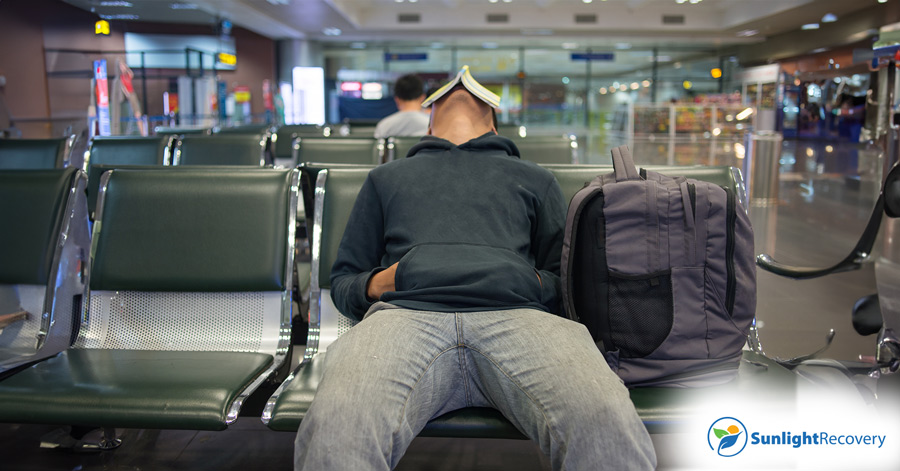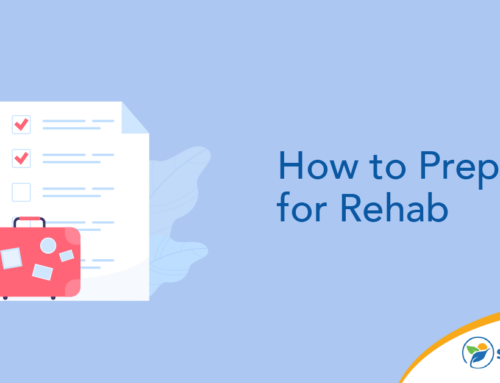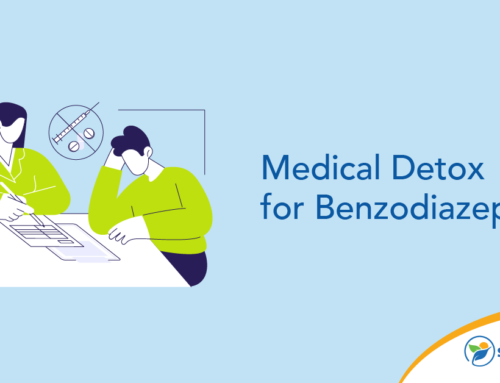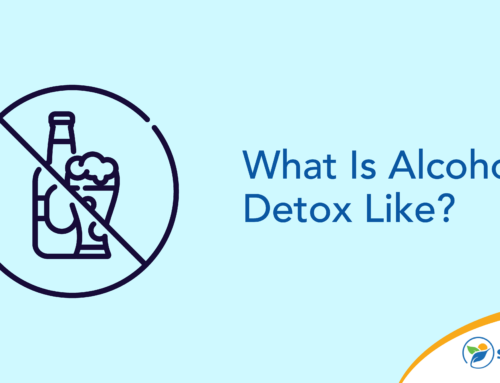Substance abuse recovery is a long process that requires you to take good care of yourself throughout. This means seeking mental health treatment like therapy, leaning on your support groups and caring for your body physically. Eating healthy, exercising and getting sufficient sleep each night is vital to the recovery process. Although alcohol withdrawal insomnia may affect your ability to sleep well at first, finding ways to get enough sleep is critical to addiction recovery.
Alcohol Withdrawal Insomnia: The Connection Between Sleep and Substance Abuse
Alcohol withdrawal insomnia can be one of the most challenging symptoms to deal with when in detox for substance abuse recovery. While using drugs can make it difficult to get quality sleep, suddenly stopping drug use also has this effect. Even drugs like cannabis cause around 40% of people to experience difficulty sleeping when they try to stop using. That’s why many people experience alcohol withdrawal insomnia in their first few days in rehabilitation and medically supervised detox. Ongoing issues of sleep deprivation can increase the chance of a relapse in substance abuse. Around 1 in 10 people who relapsed on cannabis reported that difficulty sleeping was the main reason.
That’s why it’s important to prioritize getting enough sleep to support your long-term substance abuse recovery. A 2022 behavioral review notes the connection between low sleep quality and the likelihood of drug relapse. While 20%-80% of people recovering from addiction will relapse at some point in their lives (up to 85% relapse during the first year post-treatment), this doesn’t mean treatment has failed. It’s merely a part of the process of long-term recovery. However, there’s an undeniable link between the importance of sleep in recovery and lower rates of relapse overall.
The Benefits of Sleep During Recovery
Recovering from addiction to alcohol and sleep quality are connected, so it’s essential to understand how getting enough sleep during recovery benefits your mind and body. According to the CDC, adults aged 18-60 require a minimum of 7 hours of sleep per night to function properly. Adult sleep deprivation is proven to downregulate the brain’s dopamine receptors. When this happens, people display more impulsive behavior, which can make them more susceptible to substance abuse and relapse. Therefore, getting enough hours of sleep during recovery keeps your dopamine receptors functioning optimally, making you less likely to see a rush or high from substance abuse.
Other benefits of getting the recommended number of hours of sleep per night for your age group include:
- Lower levels of stress and anxiety
- Improved mood
- Enhanced cognitive function
- Improved cardiovascular health
- Easier time controlling your weight (through hormones released during sleep cycles)
These benefits are just a few of the reasons it can be detrimental to your health to ignore insomnia after quitting drinking or other forms of substance abuse. If you’re struggling to get quality sleep after stopping alcohol or drug use, talk to a doctor and look for a way to improve your sleep during recovery.
Tips for Better Sleep During Recovery
If you’re someone who’s always struggled to get a good night’s sleep, it might seem even more challenging as you detox and enter the recovery process. Fortunately, there are plenty of ways to practice good sleep hygiene and increase the amount of quality sleep you get each night. Follow these tips for sleep hygiene as you start your recovery journey.
Establish a Consistent Sleep Schedule
When you’re dealing with alcohol withdrawal insomnia at the beginning of recovery, it’s essential to make a commitment to your sleep schedule. To get on track with consistent sleep, choose a time each night to turn off the lights and stick to it. Avoid napping throughout the day so your body is ready to sleep when you go to bed at night.
Don’t Drink Caffeine After Noon
Ideally, avoid drinking any caffeine within the 8 hours leading up to bedtime. It can take up to 10 hours for caffeine to completely leave your bloodstream, so drinking coffee, tea or energy drinks in the afternoon may affect your ability to sleep peacefully at night.
Turn Off the Screens
Putting a limit on screen time leading up to when you want to go to bed can help you get more and better quality sleep. Screens like phones, computers and iPads produce blue light, which is a part of the light spectrum that impacts our sleep cycle. Blue light stimulates a part of the brain that suppresses the production of melatonin. To prevent difficulty sleeping due to this process, commit to turning off all screens at least 30 minutes before bedtime and read a book instead.
Develop a Relaxing Nightly Routine
Developing a nightly routine can help you get into the habit of going to bed at a specific time and encourage your body to become naturally tired at this hour each day. Consider a relaxing routine like removing makeup, taking a hot shower, drinking a cup of herbal tea and reading a book within the hour leading up to bedtime.
Create a Pleasant Sleep Environment
Your environment shouldn’t be ignored when considering the importance of sleep in recovery. Where you sleep affects how you sleep. For example, if your mattress is uncomfortable, consider investing in a new one. If your window doesn’t have curtains and morning light is waking you up too early each day, consider getting blackout curtains. If there are trains or traffic in your neighborhood that keep you awake, invest in a white noise machine or listen to music while falling asleep to drown out the sounds.
How Medication Affects Sleep Management
Talk to your doctor about medication for sleep management if you’re struggling with alcohol withdrawal insomnia. Natural remedies like taking melatonin may be sufficient, or your doctor may prescribe a medication to help you sleep.
Benefits of using doctor-approved sleep aids include:
- Improved sleep quality in the short term
- Less daytime drowsiness
- Lowered stress levels
Potential cons of sleep aids like this include:
- Medication side effects
- Potential for dependence on or abuse of the medication
Talk to your doctor about what’s right for you.
Professional Help Is Available
Getting sufficient sleep during recovery from substance abuse is a critical part of long-term well-being. Ignoring signs of insomnia and poor sleep quality can put you at an increased risk of relapse.
At Sunlight Recovery in Florida, our team of counselors has the training and means to support you through every stage of the recovery process, from medically supervised detox to ongoing therapy. Contact us today to learn more or begin a treatment plan.







